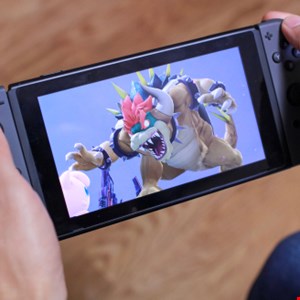- Welcome Our Newest Associate Participating Organizations
- This battery floodlight camera is perfect for my dark yard (and just hit its lowest price)
- I set up portable solar panels in my backyard for a month - and the results impressed me
- Why Docker Chose OCI Artifacts for AI Model Packaging | Docker
- Cisco Live San Diego - that’s a wrap!
Bowser to Pay Nintendo $4.5M Restitution

The alleged leader of the hacking group Team-Xecuter has reportedly admitted taking part in a piracy conspiracy against Japanese gaming giant Nintendo.
Canadian national Gary Bowser, who is also known as GaryOPA, was arrested in October last year on suspicion of creating and selling illegal circumvention devices that enabled users to hack video game consoles so they could be used to play pirated copies of authentic gaming titles.
Consoles against which the device was effective included the Nintendo Switch, the Nintendo 3DS, the Nintendo Entertainment System Classic Edition, the Sony PlayStation Classic, and the Microsoft Xbox.
In April 2021, Nintendo of America’s president, Doug Bowser (no relation), filed a lawsuit against Gary Bowser accusing the Canadian of running a “pirate operation” that infringed upon Nintendo’s copyright by creating and selling hacks.
Gary Bowser, aged 52, was charged with 11 felony counts, including conspiracy to commit wire fraud, wire fraud, conspiracy to circumvent technological measures and to traffic in circumvention devices, trafficking in circumvention devices, and conspiracy to commit money laundering. His alleged conspirator, Frenchman Max Louarn, faces the same charges.
Bowser was deported to the US after his arrest in the Dominican Republic in September 2020. While initially denying the allegations, Bowser has now reportedly entered into a plea agreement in which he admits his part in the conspiracy and agrees to pay Nintendo restitution of $4.5m.
The plea agreement states that Bowser “knowingly and willfully participated in a cyber-criminal enterprise that hacked leading gaming consoles and that developed, manufactured, marketed, and sold a variety of circumvention devices that allowed the enterprise’s customers to play pirated versions of copyrighted video games, commonly referred to as ‘ROMs’” between June 2013 and his arrest in 2020.
“While Bowser may not have kidnapped a princess this time, his conviction means that his acts of piracy against Nintendo’s bottom line are not going unpunished,” commented John Bambenek, principal threat hunter at Netenrich, a San Jose, California–based digital IT and security operations company, referencing the perennial Super Mario villain also named Bowser.
“While he will pay a hefty sum, it certainly beats the alternative of being dropped into lava, which is the customary fate given to the bad guys in Nintendo’s world.”

